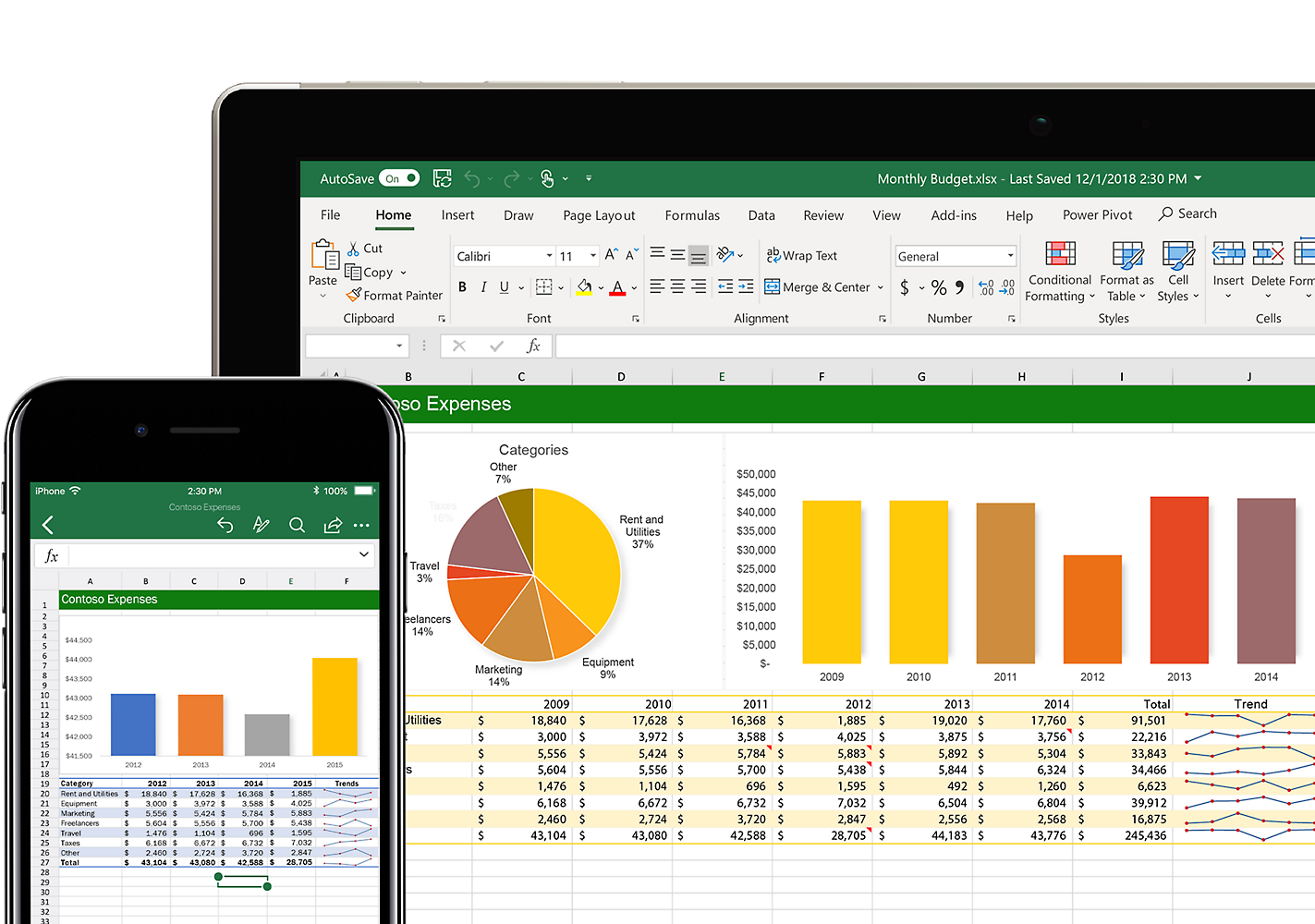Understanding personal finance management?
Financial management is the application of financial principles to the management of one’s own or your family’s money. The management of personal finances will involve an understanding of spending, income, investment, savings,… Or you can understand financial management as the most efficient use of money. It both helps you live comfortably and avoid unnecessary risks from daily life.

9 principles of effective personal financial management
Principle 1: Know where your income comes from.
The first thing when embarking on personal financial management is to list all the sources of recurring income that you have. Note that it should be listed in as much detail as possible. This makes it easy for you to calculate and allocate expenses in the most effective way.
Principle 2: Control spending and cut down on non-critical items
It is advisable to form the habit of controlling spending by day, month and year, thereby determining the necessary expenditures and the items that can be cut. For example, every month you have to spend a certain amount of money on basic needs such as food, housing, transportation,… Those are expenditures that can’t be cut. On the contrary, you can reduce the expenses for shopping, watching movies, gathering with friends,…
Principle 3: Limit credit card abuse
Credit cards with attractive credit lines and payment incentives and less spending pressure than cash. That makes it easy to overspend and get caught up in shopping flash sales. This will affect the management of your personal finances with overpayments to be paid.
Principle 4: Invest profitably with saved money
A provision, in addition to addressing future risks, is also a savings that you can invest profitably. However, you need to learn and choose suitable and safe financial investment channels such as savings, participating in accumulated investment funds,…
Principle 5: Spend less than you earn.
You should spend less than you earn, so that you can accumulate some of the money to use for the future or invest. “Don’t spend more than 10% of what you earn” is a consumer and wealth management principle that many experts recommend. For example, if your income is $5,000USD per month, you should not buy shoes that cost more than $500USD.
Principle 6: Be compliant, patient and flexible when managing spending
Compliance determines both the effectiveness and outcome of spending management. Besides, this is a process that requires patience and needs to be done for a long time. The ratio of expenditures, income, as well as the needs of each person is different. So you need to be flexible, adjust the numbers to suit yourself best.
Rule 7: Deduct 10-15% of your monthly income to save
Saving at least 10-15% of your monthly income is a basic personal financial management principle but is extremely effective for beginners in personal financial management. After that, you can gradually increase your savings depending on your current income.
Principle 8: Invest in yourself by buying hedge funds or life insurance
Currently, products such as life insurance or hedge funds are considered by people to choose to invest for themselves. Because it not only helps to protect participants’ finances against risks in life, but also incorporates additional accrued and invested benefits. This both helps participants practice proper spending management habits and have an abundant source of money for retirement.
Rule 9: Look for other sources of income
You can find some other after-hours jobs to increase your income depending on your abilities and interests. For example, if you have good writing skills, you can look for jobs related to content development, scripting,… However, you need to know how to properly arrange and balance your time to be able to ensure the best job completion.
How to manage personal finances applied by successful people
Personal financial management according to the 50/30/20 method
The 50-30-20 rule is construed as follows:
- 50% Essential, mandatory spending: Includes basic expenses to be paid periodically such as rent, tuition, electricity and water, gas, food,… Coupled with this fixed expense, you can determine the amount based on invoices, spending history in previous months.
- 30% Cost Flexibility: Includes expenses such as shopping, entertainment, other incurred expenses,… You can consider and limit costs in this clause (increase provision) if possible. Because this is not an essential spending group and sometimes you only shop out of emotion but not really necessary.
- 20% Accruals: Setting up this money helps you hedge against future financial risks. To find a reasonable number, you can experiment by setting aside about 10-15% of your income in 2-3 months. And it can be adjusted gradually according to your financial ability. The overall goal is to reduce costs in the flexible group and increase the amount accumulated.
Rules for managing personal finances 6 jars
Implement the rule of 6 jars of finance according to the following formula:
- Jar 1 – Essential spending (55% of income): The first of the 6 financial jars accounts for the largest percentage, in order to provide expenses for daily living activities, meeting indispensable needs. If you’re using more than 55% of your income for this, you need to make adjustments to cut accordingly.
- Jar 2 – Long-term savings (10% of income): This money serves long-term savings goals for life such as buying a house, buying a car, getting married, doing business,… The trick is that after receiving income, you should immediately deduct money into this amount, or open a savings book, raise a piggy bank to avoid spending on this money.
- Jar 3 – Education fund (10% of income): Enhancing your self-worth is also a way to raise your income. Therefore, you need to deduct 10% of your income into this amount to participate in certificate courses, skills, workshops,… to cultivate professional knowledge for yourself, increase your chances of promotion at work.
- Jar 4 – Enjoyment (10% of income): This is considered as a reward for yourself after working hard and saving, and also helps you have a relaxed spirit, more motivation to try. Use this money to buy things you already like, travel, take care of yourself,…
- Jar 5 – Financial investment fund (10% of income): You will use this money to invest, save, contribute business capital,… profitability, creating passive income, helping yourself achieve the goal of financial freedom. And importantly, you must not spend this money, but need to let it continue to be profitable and reinvested. This money will help you prevent job loss or financial risks in the future.
- Jar 6 – Charitable foundation (5% of income): This fund will be used for charity, helping relatives and friends. Depending on the level of revenue and expenditure, you can reduce the amount of money in this fund, but limit this amount completely, because in life there is always a need for sharing.
Why manage your personal finances?
It can be seen the importance of financial management to individuals and households. So, managing your personal finances greatly affects your income, spending, and investments. Once you manage your finances well from controlling your spending to controlling your capital and investment channels, while minimizing the risks you can face in life, you and your family will quickly achieve the desired level of financial freedom. At that time, you will have a leisurely life without worrying about financial pressure.
#1 Manage your personal finances to understand your money.
Personal financial management will help you understand cash flow and be more aware of your financial situation. As a result, you’ll know if you need an additional source of income or a reduction in spending, or which personal financial investments are appropriate,… You will be in control of how your currency works. For convenience and ease in managing spending, you can use spending management apps.
#2 Ensure financial stability through proper financial management.
Besides the income from working to earn money, you also have monthly expenses. Therefore, to ensure financial balance, spend properly and be able to save from income, you should know how to manage your personal finances effectively.
#3 Easily set personal financial goals.
When you are knowledgeable about personal financial management, you can build future financial goals such as: buying a house, buying a car, investing in personal finance,… Besides, you also know the possibility and time of achieving these goals.
#4 Be financially proactive in any case.
A backup is extremely important for you personally and your family. Help you be financially proactive in all unexpected cases such as accidents, illnesses,… Therefore, financial planning and management are extremely important, bringing peace of mind to you and your loved ones.
#5 Manage and limit debts.
Debts aren’t a big deal, but having too much debt and mismanaging your debt will affect your finances. To limit that, you apply financial management to avoid overspending and have a reasonable repayment plan.
#6 Increase your wealth.
Being financially savvy, and setting the future goals that personal finance management brings, will help you grow your assets quickly. Help you invest in your personal finances properly, eliminate unnecessary debts, increase savings.
#7 Good personal financial management helps you raise the standard of your living
The results of proper personal financial management will help you increase your assets, stabilize your finances, and have provisions to ensure a safe life. From there, you have ample funds to invest in yourself, satisfy personal interests such as travel, shopping and improve living standards.
5 secrets to effective money management of successful people
#1 List as many financial goals as possible
Make a detailed list of your long-term financial goals in detail. Arrange them in order of priority:
- Set long-term goals such as paying off debts, buying a home, or retiring early. These goals are separate from your short-term goals, such as saving for a trip.
- Set short-term goals, such as following a budget, reducing spending, reducing payments, or not using your credit card.
- Prioritize goals to help you make a clearer and more detailed financial plan.
#2 Develop the right financial plan
Financial planning is essential to help you achieve your financial goals. The plan should have multiple steps or multiple milestones. A sample plan may include making a monthly budget and spending plan, then getting out of debt.
#3 Make a budget and take it seriously, stick to it
A budget is one of the most important tools to help you succeed in managing your personal finances. It allows you to make a spending plan, allocate money properly, help you achieve your goals. A budget will also help you decide how to spend your money in the coming months and years. Don’t forget to reward yourself on occasions like when you pay off debt, reach a full budget in three months, or when you successfully accumulate your emergency fund.
#4 Pay off financial debts seriously, do not let bad debts
Debt is an obstacle that makes it difficult for you to achieve your financial goals, which is why it is a priority to eliminate them. Make a debt forgiveness plan to help you pay it off faster. After paying off a debit account, transfer all of the money in the repayment plan on that debt to the next debt.
Try the following to help you pay off your debt faster:
- Sell unused items to earn extra money for your repayment plan.
- Working a second job can help shorten your repayment period and increase your income.
- Consider areas where you can cut your budget, in order to increase the amount of cash available for your debt payments.
#5 Don’t be afraid to ask for expert personal financial management advice
Once you’ve increased your savings and want to start investing to increase your wealth, consult a financial planner to help you make wise investment decisions.
A good financial advisor will identify the risks associated with each investment and help you find the right product for your ability and return on investment. At the same time help you achieve your goals as quickly as possible. A financial planner can also help you with budgeting. In addition to financial advisors, you can consult experiences and opinions from parents, colleagues, friends,…
Best Personal Finance Management Tools 2023 Recommended
The art of managing personal finances with notebooks
You just need to prepare a compact notebook and work hard until the end of the day to keep a diary of how much money you spent today. Or more effectively, there are things you know in advance that you will do during the day, you can write down the headings in advance, tonight about adding the following amount.
Japanese-style personal finance management – Kakeibo Book
This method of saving money of the Japanese only needs a notebook and a pen. The difference is that this method does not use modern apps and applications. Every time you put pen to paper on your spending book, it will make you reflect once more on your expenses.
Although there are many different methods of saving money, the Japanese still prefer this Kakeibo method. The Kakeibo book operates on 4 questions:
- How much money do you have?
- How much money do you want to save?
- How much money will you spend?
- What would you do to improve?
How to manage personal finances with excel on your computer

Similar to the first way but for managing finances using excel, it is all done on a computer. And of course it solves the disadvantage of way 1 which is faster and more accurate calculations. With excel you just need to use a few simple commands to calculate spending, and excel also has a function to draw charts from which you can compare spending month by month.
Financial Management Software – The art of managing personal finances effectively
If you are not familiar with how to manage finances or are not familiar with how to manage them, download financial management applications. These applications are often developed by financial professionals and the way to use them is very simple. You can set a spending budget, track and record any spending just on your phone.
Frequently Asked Questions About Personal Financial Management
- Should I manage my personal finances?The answer is highly RECOMMENDED because managing your personal finances will help you live a more affluent life even with a middle income.
- What ways of managing finances are there?You can refer to the 6-jar rule, the 50/30/20 rule,…
- Where should personal cash flow be managed?You can manage your personal cash flow using financial notebooks, bank accounts, financial management software,…
- What should a beginner in financial management pay attention to?You should define your goals clearly and consistently with your goals.









